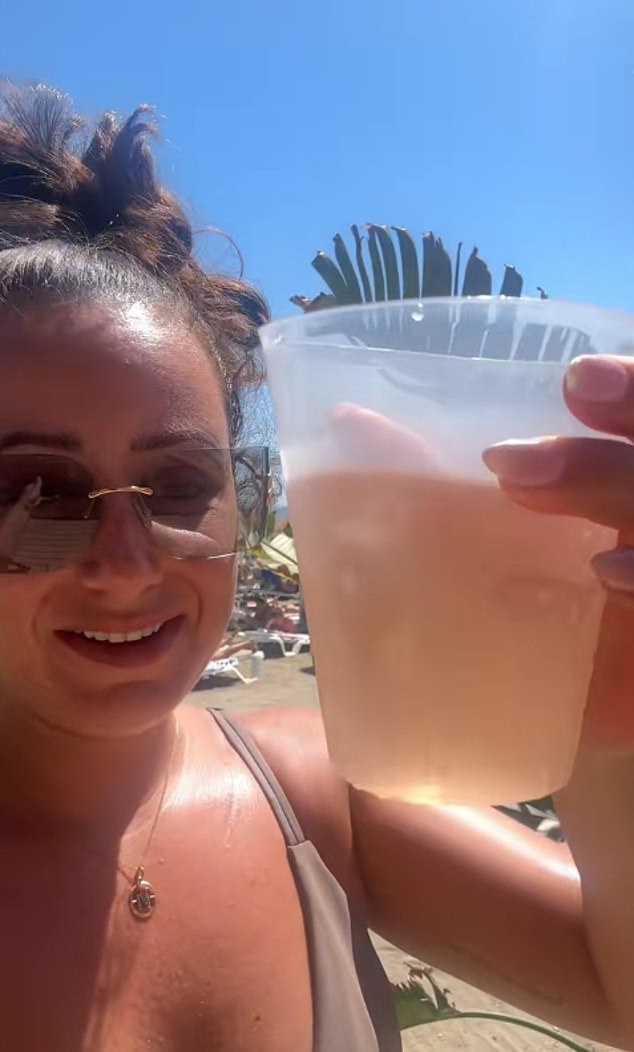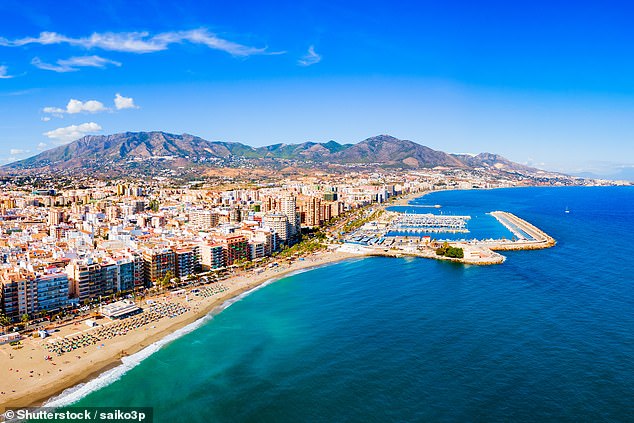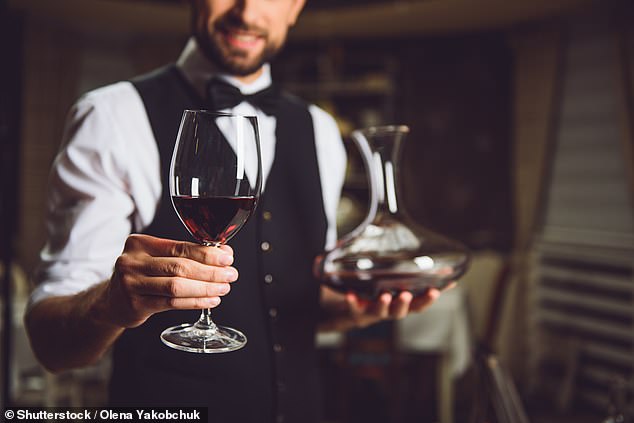A British tourist with a holiday home in Marbella has warned of dramatically rising costs in the Spanish party town this summer.
Nadia Abraham, who’s been visiting the Costa del Sol resort since she was a child, says some beach clubs in the city are ripping off tourists with high prices.
Daybeds on the sands have been particularly hit, she says, claiming one club has more than doubled its prices, now charging couples 350 euros – around £303 – per day.
Filming on a tourist beach in the popular destination, Nadia warned people to be wary of price hikes.
She said: ‘If you are coming to Marbella this summer then I just want to put this video up here to warn people not to be scammed by some of these beach clubs.’
Explaining her knowledge of the resort and prices, she revealed she has been ‘coming here every year since I was four-years-old.
‘Every single summer I spend here. The prices have just gone up like crazy.’
Panning the camera around a beach, she tells those watching the TikTok post, which has had more than 7,000 likes, how tourists are being exploited.

TikToker Nadia Abraham told her followers that she’s been visiting Marbella every summer since she was four – and was shocked to find day bed prices have shot up

Stick to public beaches in the resort is the advice of Nadia, who says a more simple lounger costs just 12 euros a day – around £10
She said: ‘It’s an expensive place, you expect things to be expensive…but there’s one thing paying a premium and another thing absolutely scamming people and I feel like they just do it to the tourists, not the locals.’
The holidaymaker says the price of day beds at one resort have risen in price from 150 euros (£129) per day to 350 euros.
A furious Nadia said: ‘Bearing in mind this isn’t a minimum spend so you can’t put this towards drink or food, it’s just the day hire cost of the beds.’
She adds: ‘They’re now charging 350 euros…what the actual F? That is like daylight robbery. Ridiculous.’
How can tourists get the same experience without paying through the nose?
Find a public beach, she advises: ‘Single beds are 12 euros each – and you can come up here for lunch, get a drink at the bar but you’ll save yourself 350 euros – it’s the same beach, the same sea!’
Earlier this month it was revealed that a sneaky wine scam has made a comeback in bars and restaurants across popular European holiday destinations, with experts warning it could cost unsuspecting tourists far more than just their money.
Wine ‘repotting’ involves staff quietly collecting unfinished glasses and bottles of wine left behind by customers, mixing the contents together, and reselling it as high-end varieties such as Rioja, Chablis, or Albariño.

Marbs: The Costa del Sol resort remains hugely popular with Brits heading abroad…and prices often reflect the high demand
The mixed wine is often poured into generic, unlabelled bottles and passed off as premium products – sometimes at eye-watering prices.
The scam has been reported in tourist hotspots across Spain, Italy, and France, particularly in Paris, but similar incidents have also emerged in parts of the US and Asia.
Insiders say the scam is often set up at management level, with restaurant owners and managers instructing staff to carry out the practice to discreetly increase profits, as reported by EuroWeekly.
Speaking to French newspaper Le Parisien, one veteran waiter said: ‘When it’s quiet, we collect the leftovers from open bottles and present them as a “superior” white wine.’
A wine expert who joined the publication’s investigation added: ‘You couldn’t tell a rioja reserva from a generic red unless you really study the body and the fruity notes.’
Experts further warn that the scam goes beyond the loss of money – it carries potential health risks, too.

A ‘sneaky’ wine scam is making a comeback in bars and restaurants across popular European holiday destinations, with experts warning it could cost unsuspecting tourists far more than just their money
With no control over what goes into the mix, customers may be unknowingly consuming wine with undisclosed or unidentified additives or allergens.
People with sulphite sensitivities, intolerances or allergies may be especially at risk.
Though local food and drink regulators have stepped up inspections in cities like Paris, enforcement remains inconsistent in busy tourist areas where customer turnover is high.
The scam is particularly prevalent in high-footfall areas where visitors may be unfamiliar with local wine labels or pricing, and therefore less likely to notice when something is off.
Wine experts have since advised travellers to take simple precautions to reduce the risk of being served repotted or counterfeit wine, as highlighted by EuroWeekly.











